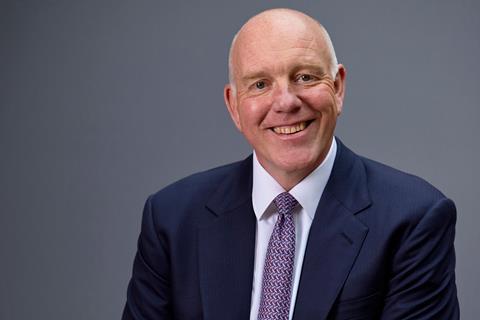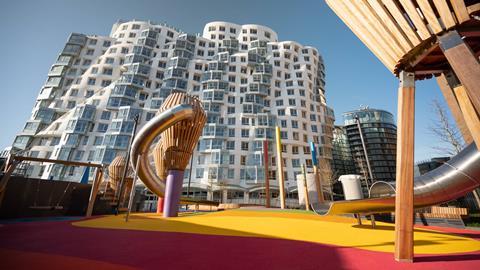Chief executive says supply chain is ānumber one concern right nowā
Sir Robert McAlpine has moved some of its supply chain onto weekly payments so concerned is it by the threat of subcontractors being unable to ride out rocketing labour and materials costs.
The firm normally takes 27 days on average to settle its bills but has begun paying some fortnightly and weekly to help companiesā cashflows.
Underlining the seriousness of the situation, chief executive Paul Hamer said McAlpine had never had to resort to weekly payments during his five years at the business.
āThe supply chain is our number one concern at the moment,ā he told ŠŌ°ÉµēĢØ. āItās very fragile. The cost of materials and labour has escalated dramatically and is having an impact on cash flows. All of them [suppliers] are feeling the stress and strain from inflation. Over the next six months weāll be paying very particular attention to the state of the supply chain. Weāve got to be very careful and we need to help each other.ā

Subcontractors have increasingly been hit by signing fixed-price contracts a couple of years ago only to have seen costs go up and up since.
āWhen we go to the supply chain now, prices are 5% to 10% higher than they were just three months ago,ā Hamer said. āThe issue [of cashflow] has exacerbated in the last six months. [Suppliers are] locked into fixed price contracts, inflation has been getting worse, they get squeezed and it affects their cashflow. Weāve got another 12 months or so of this before it passes.ā
Hamer said McAlpine was also thinking twice about signing fixed prices jobs itself at the moment with steelwork, rebar and concrete the materials which had seen the biggest price rises this year.
āItās do-able to create a fixed price but itās very difficult to do at this moment in time. Itās very difficult to manage the inflation risk. The trouble is the volatility of the rises.ā
Hamer said business in London remained āvery busyā although he added the time it was taking to get projects from concept to site was now taking three months longer than a year ago. āClients are keen to press on but more jobs are going through the challenge process.ā
He said hotspots such as Birmingham and Manchester also remained strong but admitted some schemes north of the M25 had been stalled. āThe further north you go, the rate of return starts to get tighter.ā
Hamer was speaking as McAlpine announced it had returned to the black last year racking up a Ā£9.2m pre-tax profit from a Ā£27m loss in 2020. Turnover was up 14% to Ā£937m.
As well as its core commercial work, McAlpine is also looking at more civils work and has schemes with HS2 and National Highways on the go while it is looking at a civils and infrastructure framework for nuclear decommissioning work at Sellafield on the Cumbria coast.

The firm, which is expected to find out next month whether it has won a Ā£200m scheme to build a new HS2 station called Interchange at Solihull, said it remained debt free and improved net cash from Ā£96.7m to Ā£106.2m.
Hamer also added that more and more clients were wanting to know how firms like McAlpine could help them hit net zero carbon targets. āEvery client we talk to, carbon and Passivhaus is at the top of their agenda.ā
McAlpine claimed Ā£119,000 from the governmentās Coronavirus Job Retention Scheme last year, well down from the Ā£7.3m it was handed in 2020 at the height of the pandemic. The number of employees at the business remained flat at just under 2,200.
Its accounts also show it was hit with a Ā£200,000 cost relating to its discontinued energy-from-waste business, a market it pulled out of in 2017.























No comments yet